It’s exciting that English books are starting to appear in ordinary libraries.
Iryna, teacher, Ukraine
Rebuilding book collections in Ukraine
Iryna is a teacher in Ukraine. She and her daughter are just two of the many readers benefitting from books provided by our partnership with PEN Ukraine. This her story.
I am Iryna. I have been a teacher since 2002. I teach English. I love my job, and I love reading. However, unfortunately, I haven’t been dedicating as much time to reading lately as I would like. I hope this situation will improve.
I visit the library and read both in Ukrainian and English. I have a 15 year old daughter. She loves reading too, in both English and Ukrainian. She borrows books from this library (the Regional Youth Library in Chernihiv) and from another one.
I work in a private school with small groups, and most of my students are girls. I don’t see major issues in class. We have fun and engaging lessons. The biggest problem we all face is the war, with air raid alerts disrupting the learning process. My daughter’s school sometimes has to go to the shelter two or three times in an hour. Teachers can’t cover everything planned, so more material is assigned for independent study and homework.
I wouldn’t say my reading habits have changed drastically since the beginning of the full-scale war. However, when I read something emotionally heavy, like books about war, children, or family, it’s hard to process.
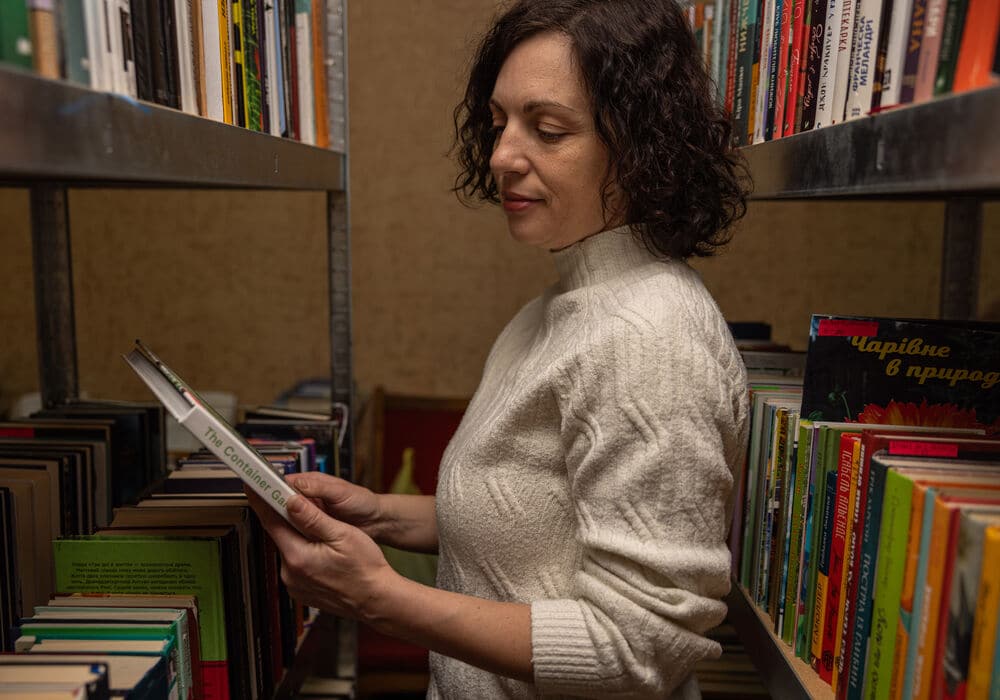
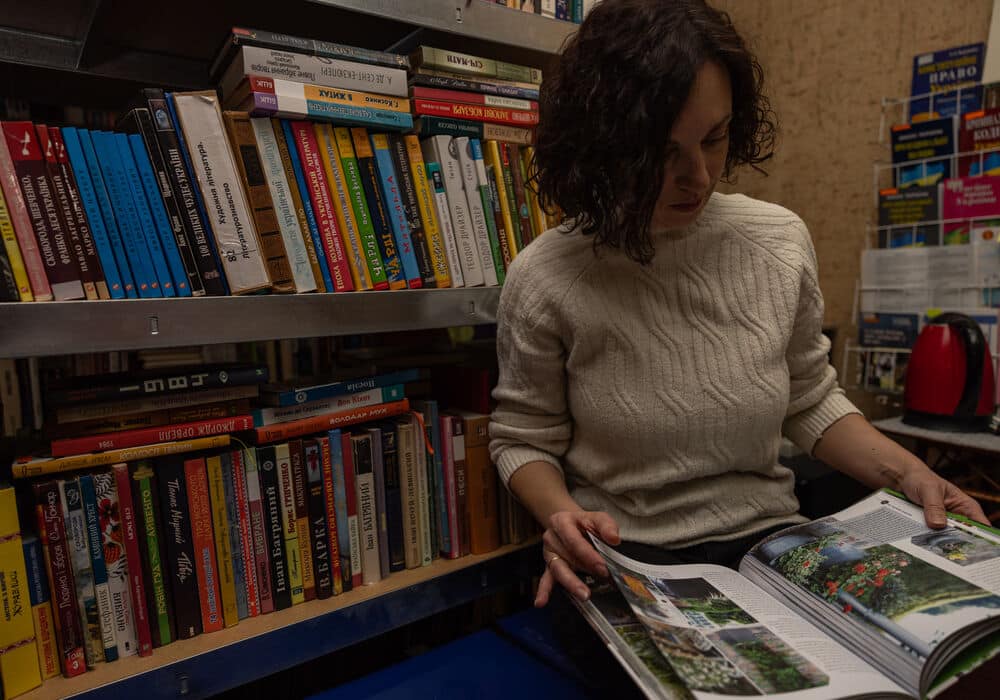
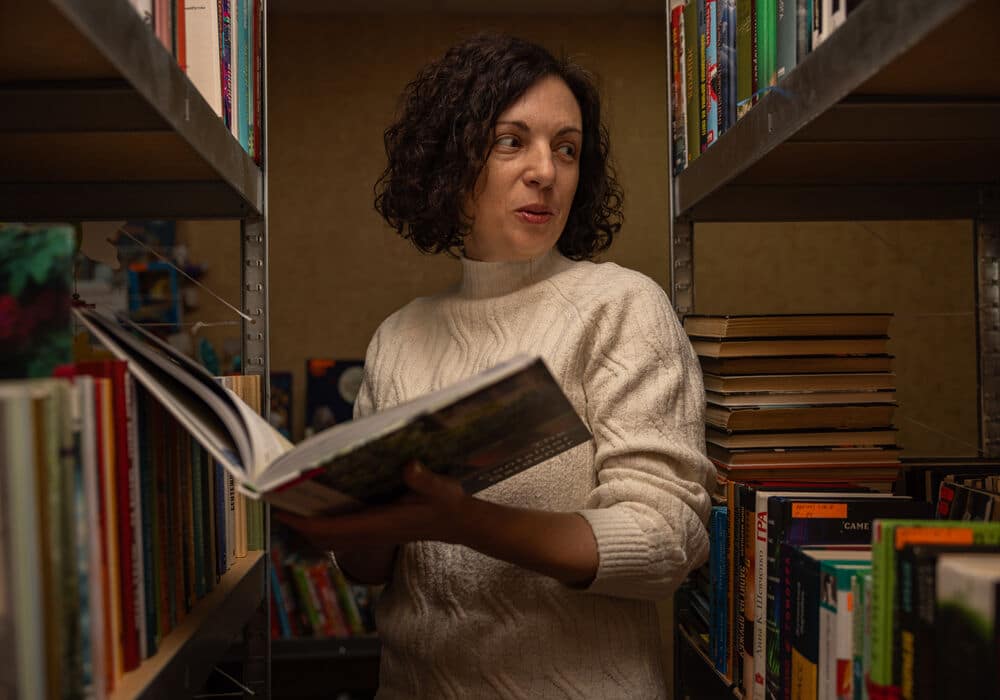
I’d like to read contemporary authors, especially those translated into Ukrainian. For example, I saw Jojo Moyes in the library, and I’d enjoy reading Colleen Hoover. I love fiction translated into Ukrainian and would gladly read it in English. I also enjoy non-fiction, especially about plants and flowers, so I can say I was lucky today. I have many Ukrainian books about plants, and today I’ve found some in English too.
Children have less free time now. However, my daughter tries her best. I’m happy she’s interested in activities outside of school, like literature and theatre. That keeps her engaged. She’s into young adult literature, dealing with teenage issues, gender equality, or inequality, and self-discovery. These are relevant topics for her. She’s interested in the role of women in society and whether they face discrimination.
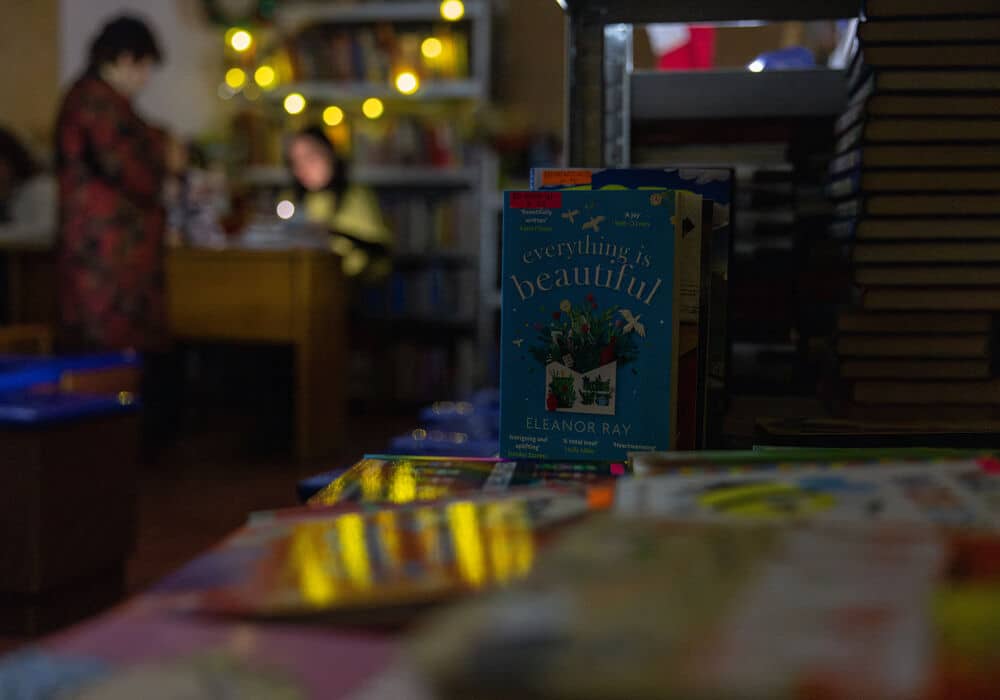
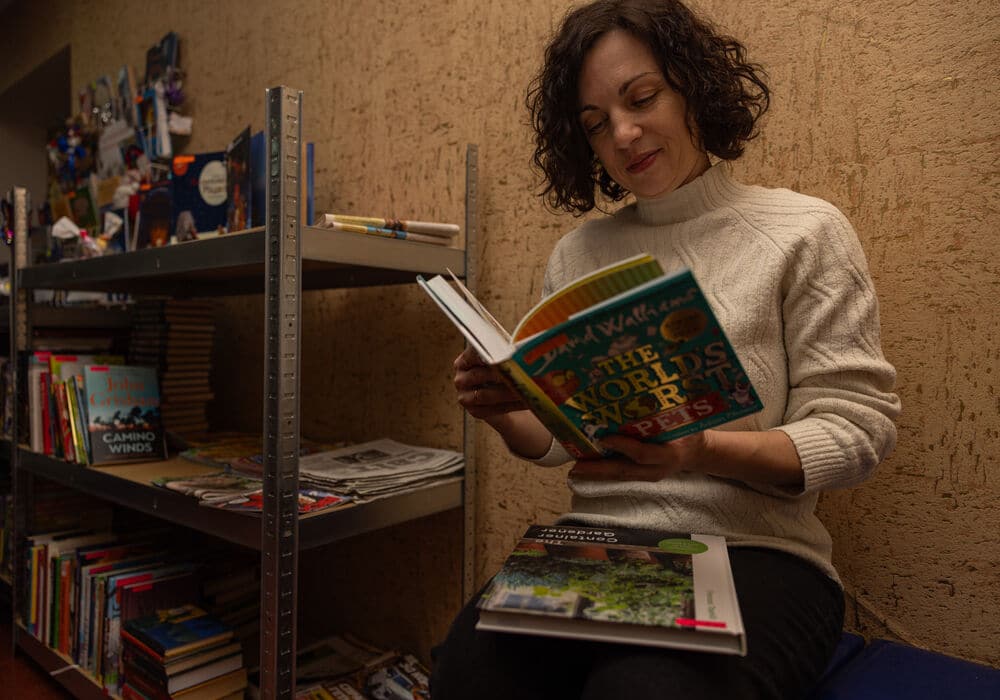
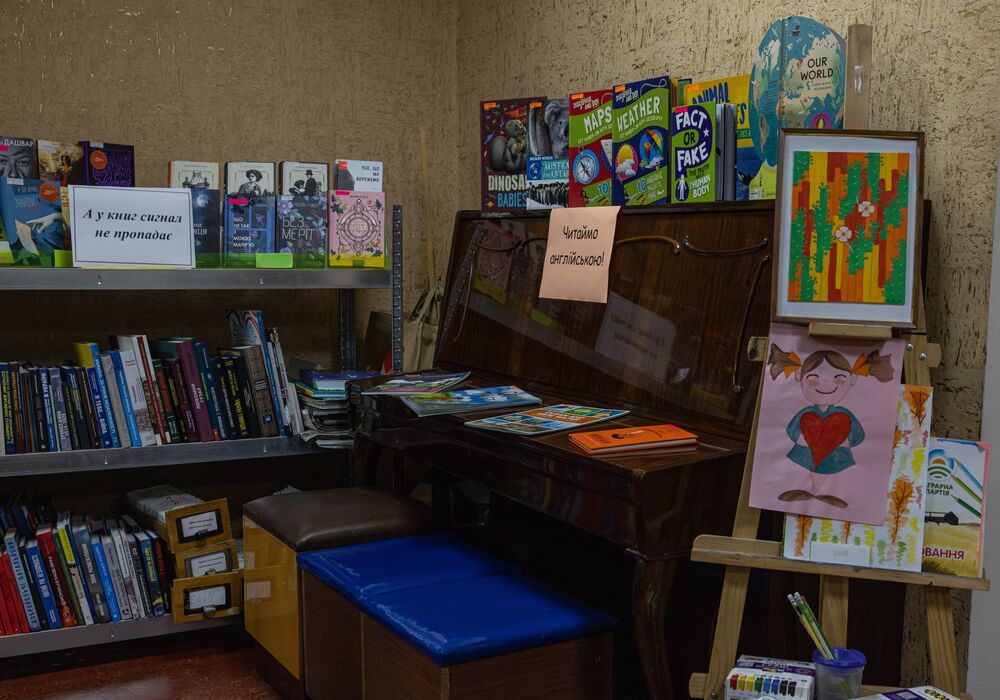
It’s exciting that English books are starting to appear in ordinary libraries. If they get more English books, I’m sure they’ll be in demand.
If people gradually start learning English, it makes a difference. I see progress among the youth – for them, it’s important. Adults also join our groups to learn English. Some need it for work or travel, while others just want to learn. But I think English literature will appeal mostly to younger and middle-aged people. Among my daughter’s friends, there’s definitely interest.
The support we receive is very important. Books are expensive now, and English-language books are even more so. Not everyone can afford to buy them. Libraries provide the opportunity to access these books.
Find more about PEN Ukraine’s Unbreakable Libraries programme.
All images (c) SKozliuk2024
Books during conflict
Read more about how the books you can help us send are helping those living with or recovering from war.
Reading together in Ukraine
Anastasia is a Ukrainian mum. Thanks to supporters like you, we’ve sent books that she loves to read with her daughter. This is her story.
Read moreReading in Dark Times
Stas Kozliuk is a Ukrainian reporter and photographer. He visited many of the libraries where we’ve provided books in partnership with PEN Ukraine. In this blog, he reflects on his experiences.
Read moreRebuilding lives through the power of reading
During the recent war in Lebanon, Shereen led a bibliotherapy programme to help children cope. In this blog, she reflects on the lessons learned and the power of books during conflict.
Read more